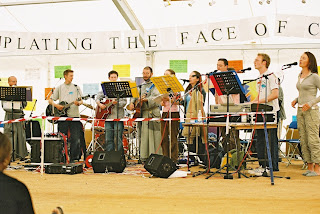At the start of 1972 the staff of Corpus Christi
Catechetical Institute resigned. Fr Hubert Richards, its Principal, wrote to
the Cardinal saying, "There is between us such a divergence of
understanding on the nature of religious education that it would be inappropriate
for us to remain as a staff in charge of your College."
Cardinal Heenan appointed Fr Michael Keegan
of the Leeds Diocese as the new Principal, and Fr Hugh Lavery of Hexham and
Newcastle Diocese as the new Vice-Principal. I knew Mgr Keegan when he joined
the staff at the English College when I was a seminarian there. He was a
much-respected house Theological tutor to the students. I remember him telling
us a little about his time as Principal of the College – he spoke of the very
strange culture which he encountered there when he took up his appointment.
After resigning Fr Hubert Richards first spent some time at
St Edmunds in Cambridge, then at Pinner in Middlesex before leaving the Priesthood in 1975 and marrying one of his
former students of Corpus Christi, the former religious Sister Clare Milward.
They settled in Norwich where he died in 2010. Clare Richards, recently retired
from her work in Education, lives there still.
In March 1975 the closure of Corpus Christi
Catechetical Institute was announced; it closed in July 1975. The reason given
for this was an economic one; student numbers, especially from English Dioceses
had fallen, and the College was relying heavily on International students.
However, I have heard it said many times that the reason behind its closure was
not simply financial, but that this erroneous start in the new catechetics
needed a radical closure. Even so, the damage had been done, and during the six
years that Fr Richards led Corpus Christi, huge numbers of priests, religious
and lay teaching staff attended courses and disseminated the errors of the
College throughout the British Isles and further afield in the Engish-speaking
world.
At Junior school in Leeds, I was aware of
some of the Sisters going away on courses and coming back with their habits
radically changed in appearance and full of all sorts of weird ideas. However,
I was never in one of their classes; the class teachers who I had, at Junior
school, never went to Corpus Christi and, as a consequence, we were taught the Catholic Faith. Later, at St Michael’s College in Leeds
we had an RE teacher who taught us that Jesus (a human person) received a
Divine mission at his baptism in the Jordan. I remember thinking at the time
that this was bizarre clap-trap. He also incidentally taught us about all the
forms of Contraception. This was 1973 and we were thirteen year olds!




















